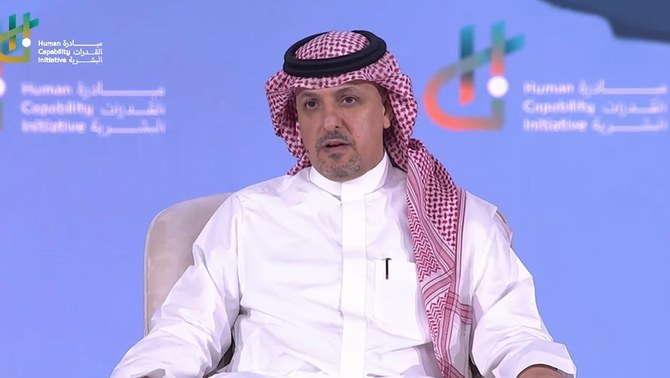
- ARAB NEWS
- 01 Jul 2025

RIYADH: Saudi women should explore more opportunities in the petrochemical industry, as only 25 percent of the sector’s workforce is female, said a top official.
Speaking at the Human Capability Initiative in Riyadh on Feb. 28, Faisal Al-Suwailem, executive vice president of corporate human resources at Saudi Basic Industries Corp., said that the industrial sector in the Kingdom has been witnessing a sharp rise in female employment over the past three years.
“If we take a look at the petrochemical industry, in the last 20 years, I have seen a great increase in the participation of females in the petrochemical industry. However, if you look at the number of women in the petrochemical industry, it is still about 25 percent. So, I believe we still have room to grow,” said Al-Suwailem.
He added: “In the industrial sector, the hiring of females has increased 93 percent over the last three years. We have right now over 63,000 females working in plants around the Kingdom.”
Al-Suwailem further pointed out that Saudi Arabia has surpassed the female workforce target outlined in the Kingdom’s Vision 2030.
“Let us first look at Vision 2030, and under the thriving economy for female participation in the labor market, the baseline target was set at 22.8 percent, and now we are at 34.5 percent,” said Al-Suwailem.
He added that SABIC stands out as one of the companies offering structured training programs aimed at nurturing and enhancing the skills of young individuals.
Al-Suwailem also underscored that SABIC offers scholarship programs that provide equal opportunities for both men and women.
“SABIC is a national champion for sure in petrochemicals, but it also has a proven record of being a national champion for development, job creation, learning, and contribution to the gross domestic product,” said Al-Suwailem.
He added: “SABIC’s scholarship program, which is meant for Saudi bright young talents, is right now equally split between men and women.”
For her part, during the same panel discussion, Cabinet Secretary and Minister of Labor and Social Protection of Kenya Florence Bore said that the country is preparing its youth to adapt themselves to procure jobs in the international market.
“Our focus currently is on labor migration, and even as you focus on labor migration, it is one of the areas where we get foreign remittances,” said Bore.
She added: “Kenya has been undergoing lots of changes in the workplace. We have both the informal and formal jobs. The informal sector is really growing at a faster rate than the formal jobs. And because of that, you will find most of our Kenyans are now venturing out for jobs in the international market.”